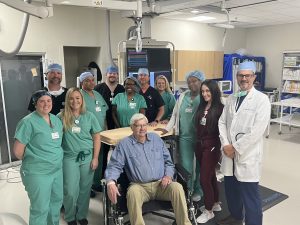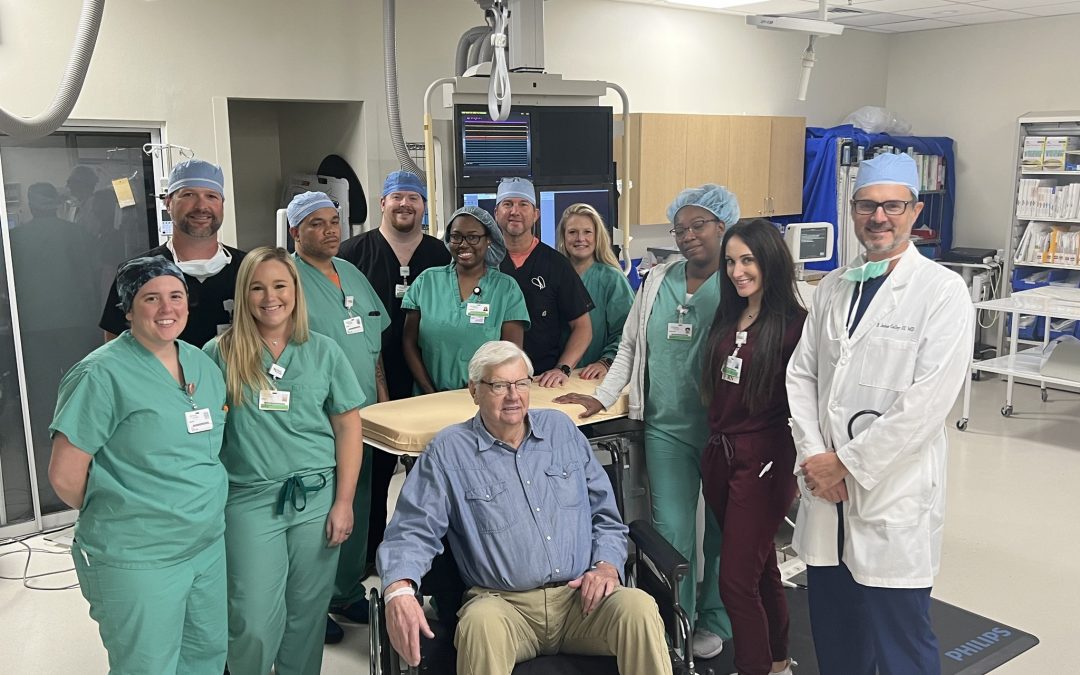
As it happened, the retired physician had detected AFib when listening to Don’s heart, and strongly encouraged him to follow up with a cardiologist, which he did. Following a confirmed diagnosis, Brummett began taking blood thinners, but after a couple of falls, his doctor discussed with him the option of a Left Atrial Appendage Closure (LAAC) implant. The device is an alternative to the lifelong use of blood thinners for people with AFib not caused by a heart valve problem (also known as non-valvular AFib). “I knew I was a candidate for the procedure,” says Brummett, “but I didn’t pursue it right away, and continued on blood thinner medication.”
When Don and his wife moved to Brandon to be close to family, he started thinking more about the LAAC implant, and made the decision to schedule the procedure. “My wife and I were overwhelmed by the expertise of the cardiologists at Merit Health River Oaks, and the staff was very friendly, outgoing and helpful. The procedure went very smoothly and I can’t even tell that the device is there.”
B. Judson Colley III, MD, MPH, electrophysiologist, performed the hospital’s first implant of the LAAC device on Brummett. “Building upon well-established technology, the device serves as a safe and effective stroke risk reduction alternative for patients with non-valvular AFib, especially those with a compelling reason not to be on blood thinners,” said Dr. Colley. “I’m proud to have performed the first implant of this device in Rankin County at Merit Health River Oaks, as it offers patients a potentially life-changing stroke risk treatment and will allow us to treat a broader range of patients going forward.”
Up to 6 million Americans are estimated to be affected by AFib – an irregular heartbeat that feels like a quivering heart. People with AFib have a five times greater risk of stroke than those with normal heart rhythms. The LAAC device closes off an area of the heart called the left atrial appendage (LAA) to keep harmful blood clots that may develop in the LAA from entering the bloodstream. By closing off the LAA, the risk of stroke may be reduced and, over time, patients may be able to stop taking their blood thinner. The device is permanent and doesn’t have to be replaced. The procedure is done under general anesthesia and takes about an hour. Patients commonly stay in the hospital overnight and leave the next day.
Heart disease is the leading cause of death in the United States, but with patient education and preventive care, Americans can take control of their heart health. Merit Health River Oaks offers a comprehensive heart program, allowing for access to quality cardiac care close to home.
To learn more about the comprehensive cardiac program at Merit Health River Oaks, visit https://www.

